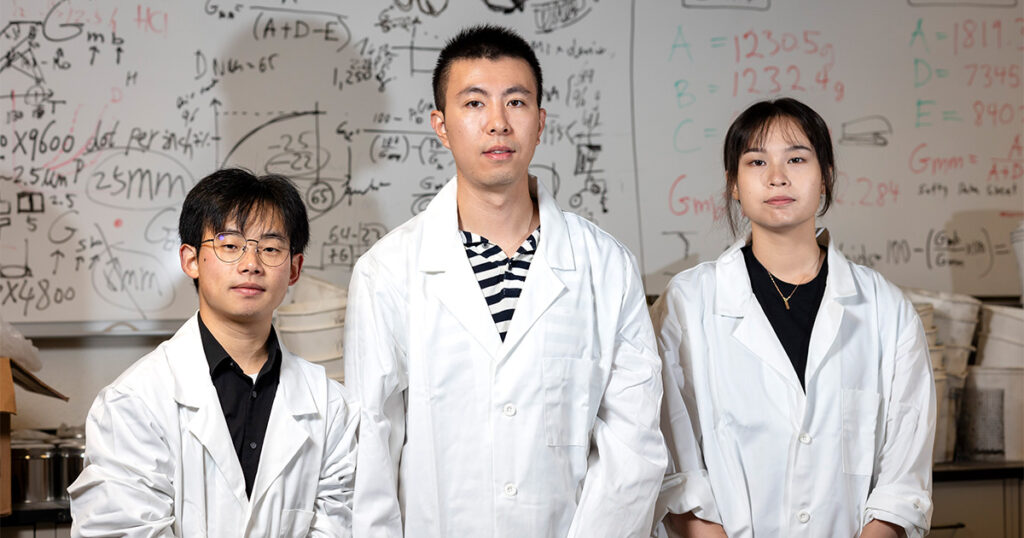Plastics are major source of municipal solid waste that poses threats to animals, humans, and nature. Once in the environment, research has shown that plastic pollution may take 100 to 1,000 years or more to decompose.
The University of Tennessee is the lead organization on a Department of Energy-funded project centered on developing innovative solutions for sustainable infrastructure by enabling the cross-industry reuse of co-mingled waste plastics as a high-quality asphalt modifier. The initiative aims to tackle environmental challenges by reducing landfill waste and enhancing the performance of asphalt pavements.
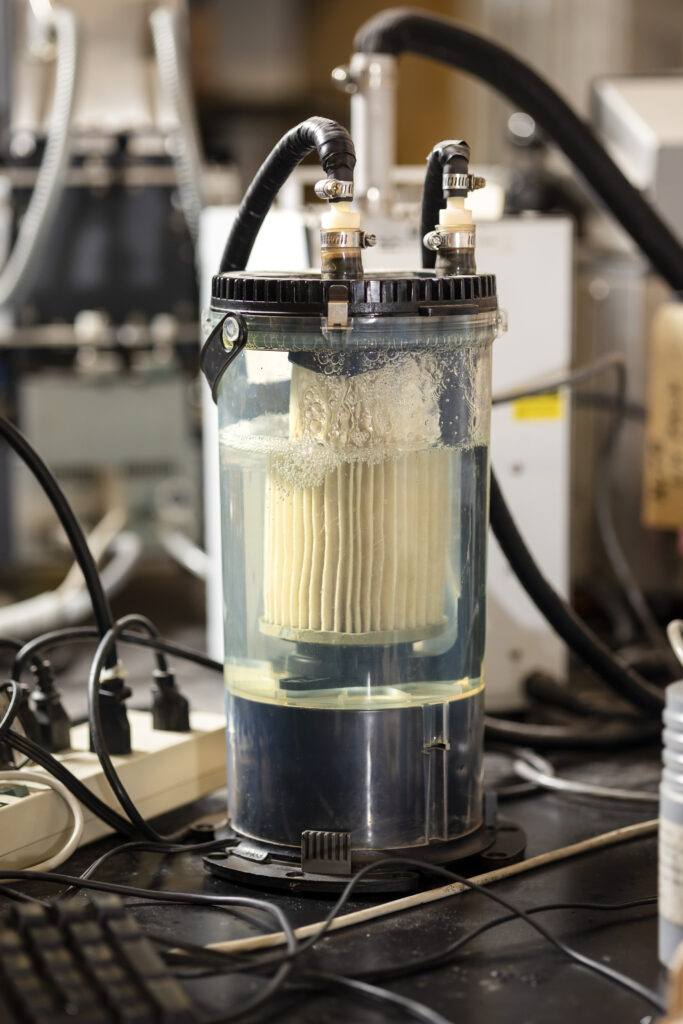
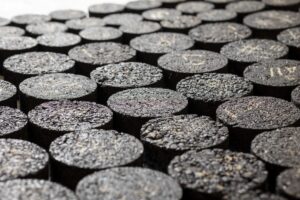

Edwin G. Burdette Professor Baoshan Huang is serving as the principal investigator of the project. The co-PI’s are Associate Professor Hongyu Zhou and Professor Qiang He. Collaborating partners include the group of Alexei P. Sokolov at Oak Ridge National Laboratory (ORNL), David Harper’s research group at the UT Institute of Agriculture’s Center for Renewable Carbon, and Gaylon Baumgardner, who is the executive president of Paragon Technical Services, Inc.
About the Project
UT is primarily responsible for designing a novel process to produce a recycled plastic-rubber (rPR) modifier. This process involves developing and optimizing a technique to co-stabilize recycled plastics and ground tire rubber (GTR) through a reactive extrusion method.
“Combining the waste plastic with wasted tire rubber is necessary because it effectively prevents the separation between the asphalt and plastic modifier. In addition, it improves the engineering properties of the modified asphalt,” said Danni Li, a first-year PhD student in the Department of Civil and Environmental Engineering who is heavily involved in the project. “We combined the rubber and the waste plastic together through reactive extrusion with the help from Dr. Harper’s group at the UTAI’s Center for Renewable Carbon.”
Huang’s group is also conducting extensive lab tests to evaluate the engineering properties of the rPR-modified asphalt, such as its resistance to rutting, fatigue, cracking, and moisture damage.

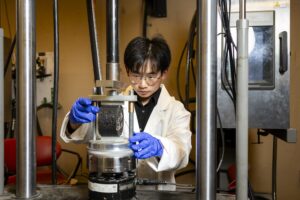
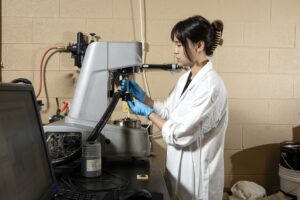
Along with promoting sustainable waste management, UT’s group hopes to create a superior pavement solution that leads to longer lasting and more resilient roadways.
“In our report, we have updated the quantities of plastic and waste rubber being used, and we’ve tried to enhance the use,” said CEE Research Assistant Professor Kai Huang. “Because if the project goes well and we can demonstrate how good our new material will be, the pavement industry is very likely to adopt it widely. The project outcomes could pave the way for partnerships with industrial stakeholders to put it on the road.”
Contact
Rhiannon Potkey (865-974-0683, rpotkey@utk.edu)
